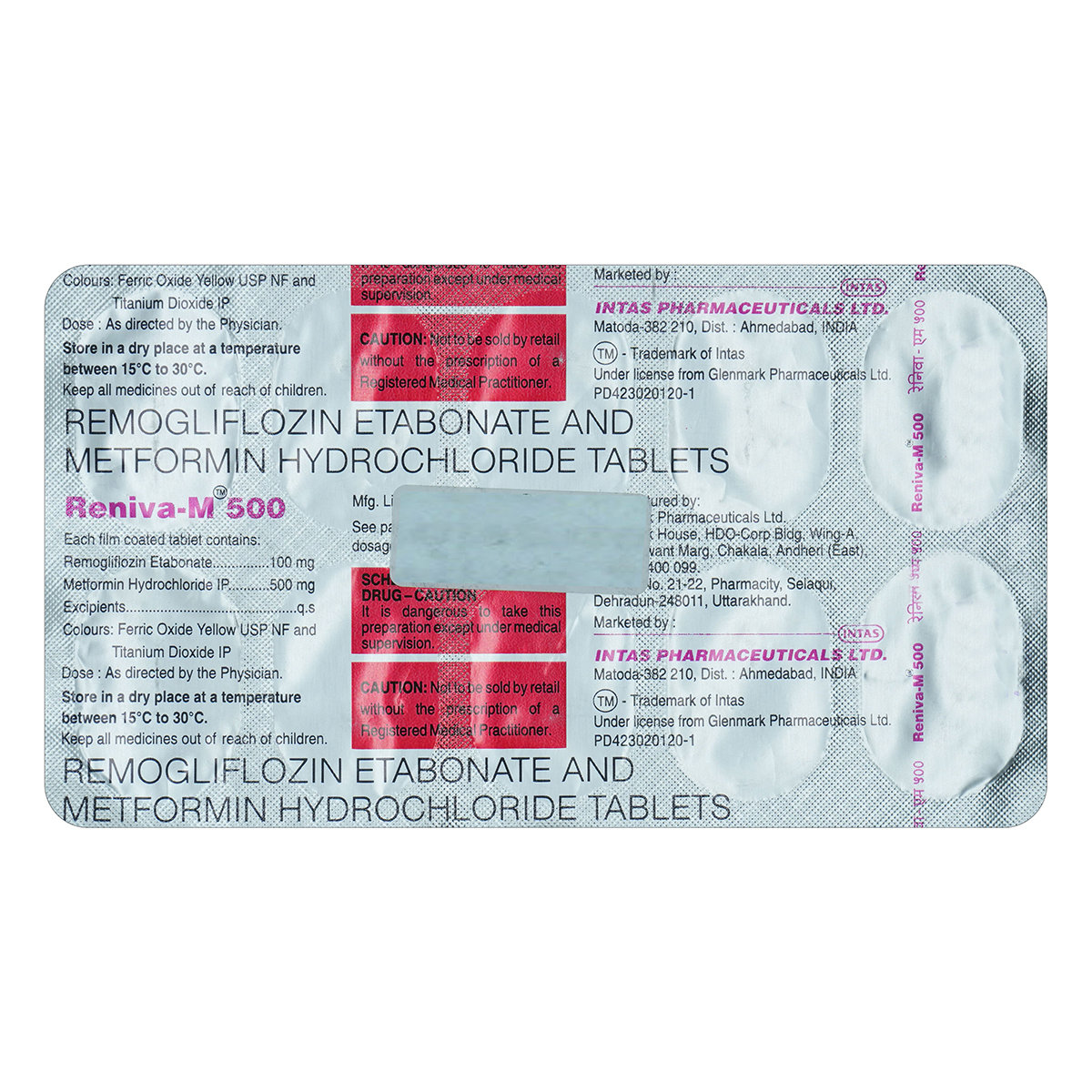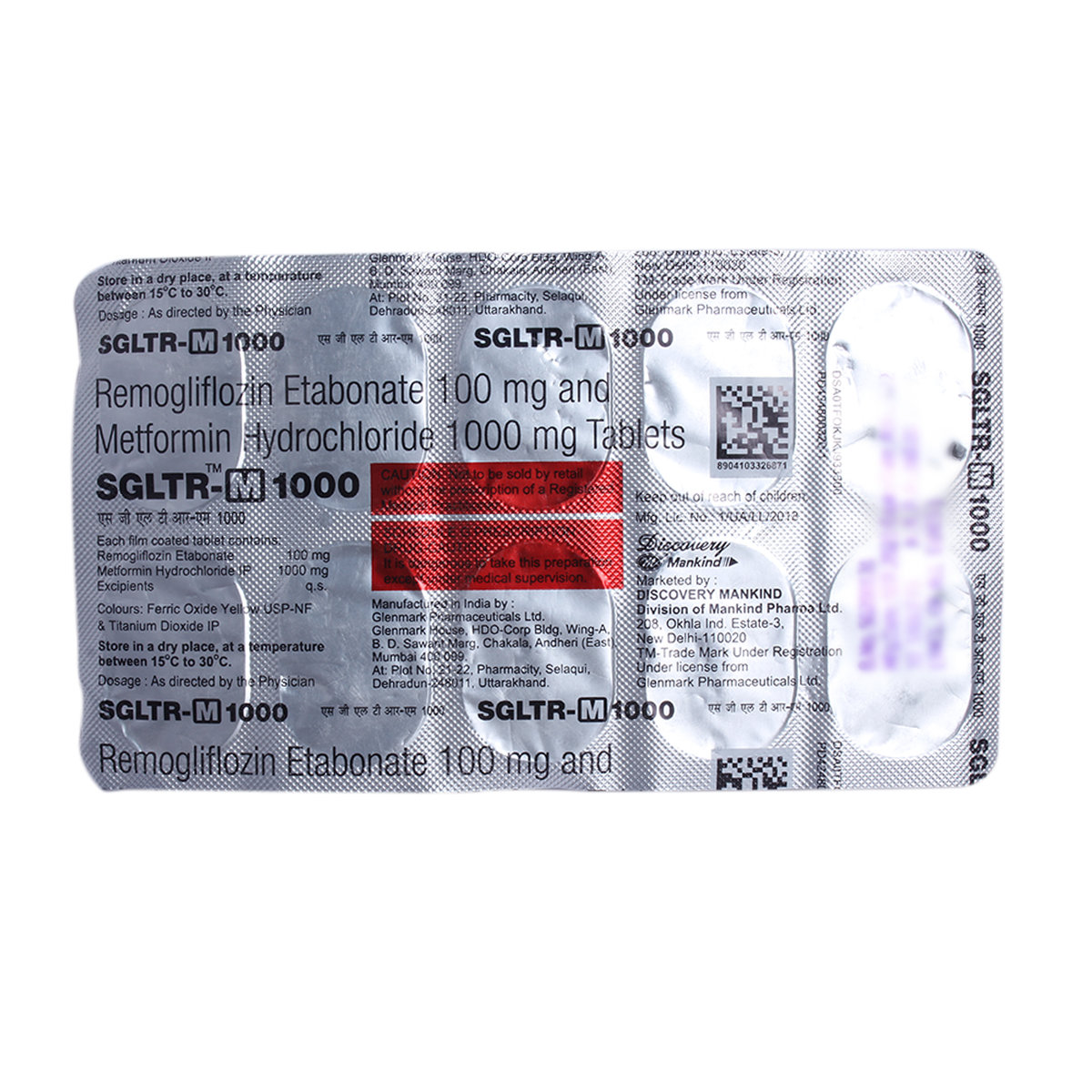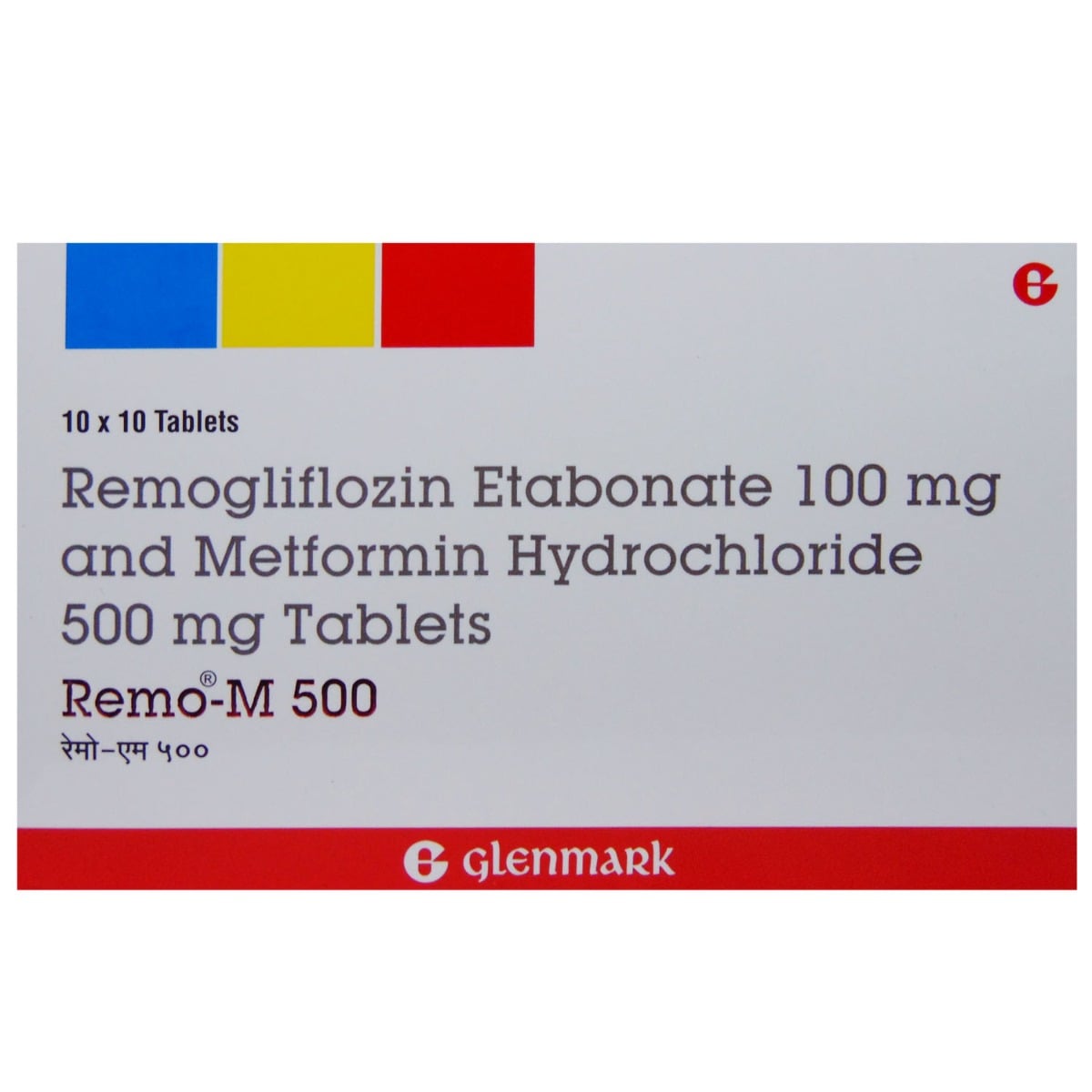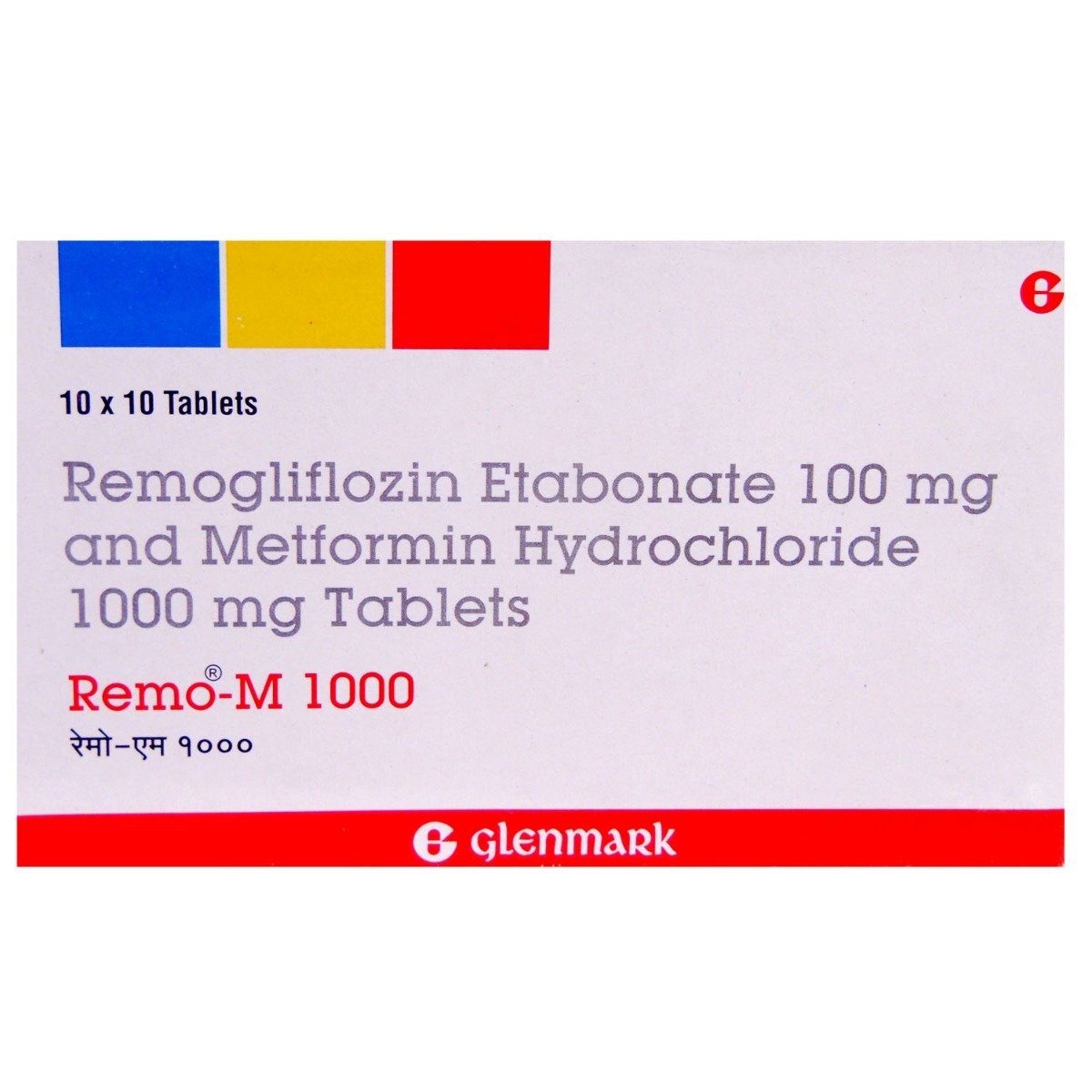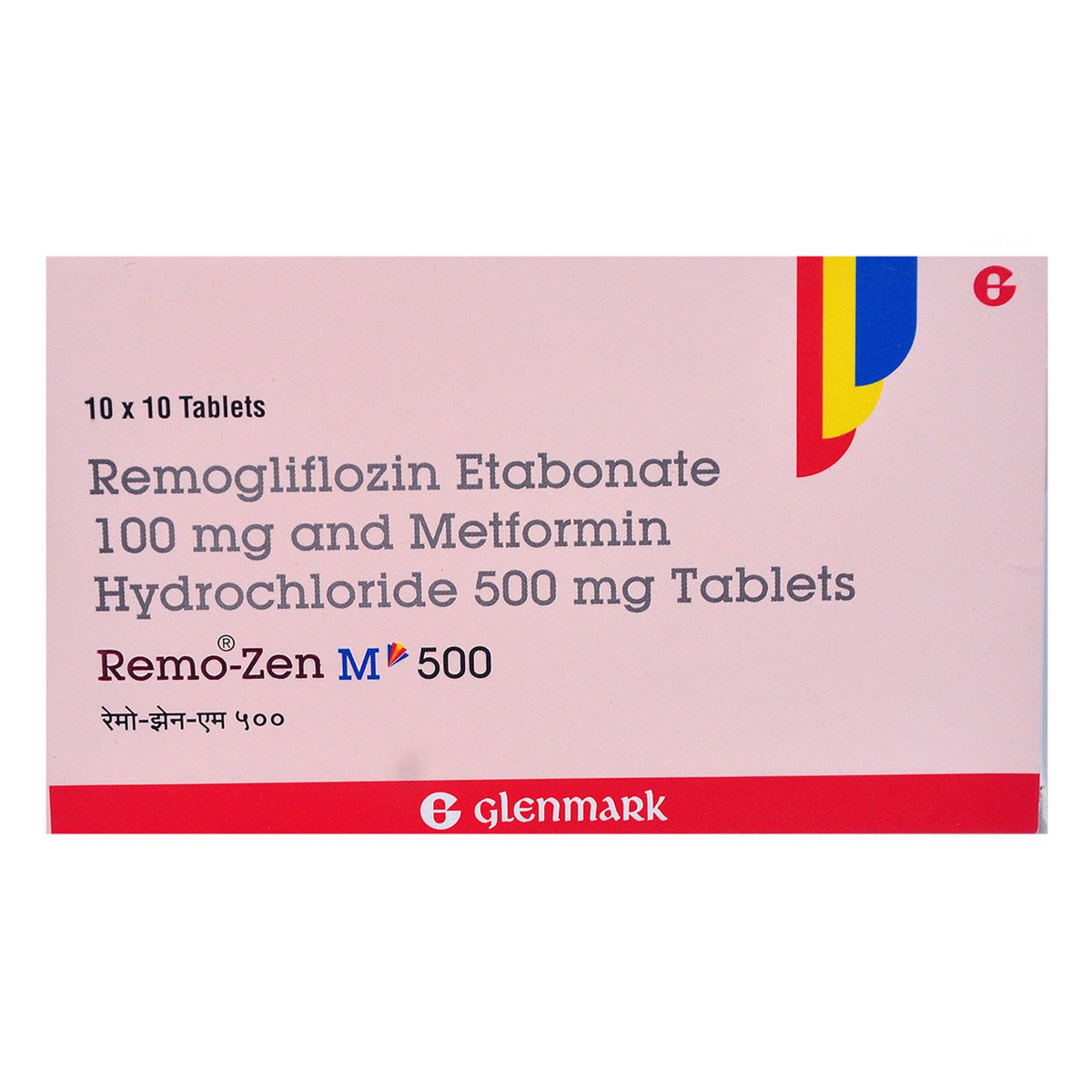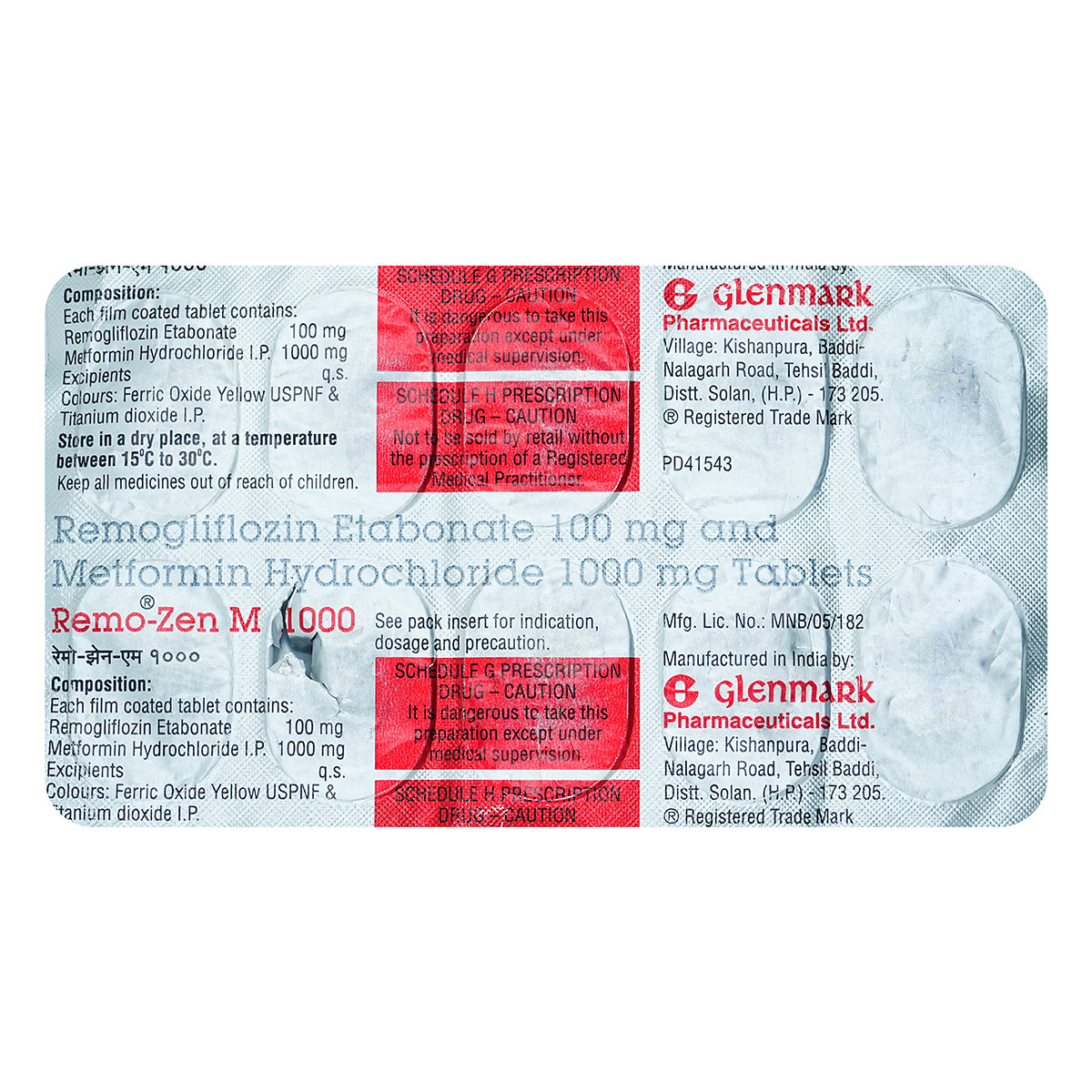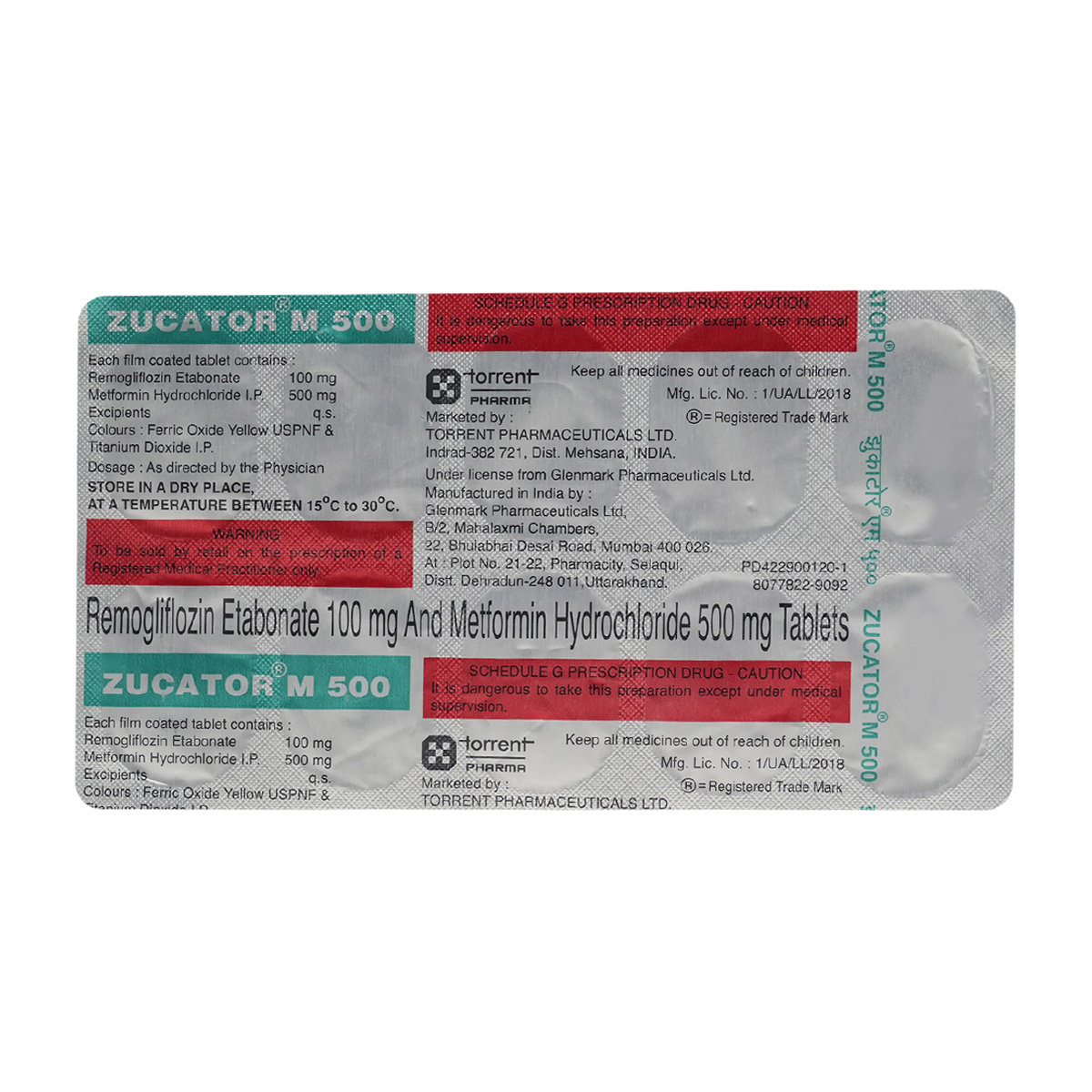Remogliflozin+metformin
About Remogliflozin+metformin
Remogliflozin+metformin belongs to the group of anti-diabetic medicines used to treat type-2 diabetes mellitus adjunct to diet and exercise. Type-2 diabetes mellitus is also known as non-insulin-dependent diabetes or adult-onset diabetes. It is a medical condition in which blood glucose levels are above normal due to insulin deficiency, insulin resistance, or both.
Remogliflozin+metformin is a combination of two drugs, namely: Remogliflozin and Metformin. Remogliflozin helps in removing excess sugar from the body via urine. Metformin works by reducing the sugar production by cells in the liver and delays sugar absorption from the intestines. Also, it increases the body’s sensitivity to insulin. Together, Remogliflozin+metformin helps control the blood sugar levels.
Take Remogliflozin+metformin as prescribed. You are advised to take Remogliflozin+metformin for as long as your doctor has prescribed it for you, depending on your medical condition. In some cases, you may experience certain common side-effects such as stomach upset, hypoglycaemia, nausea, and vomiting. Most of these side effects do not require medical attention and will resolve gradually over time. However, you are advised to consult your doctor if you experience these side effects persistently.
Consult your doctor before taking Remogliflozin+metformin if you are pregnant or breastfeeding. Avoid alcohol consumption while taking Remogliflozin+metformin as it might cause unpleasant side-effects. Limited information is available regarding the usage of Remogliflozin+metformin in children, so please consult a doctor. Inform your doctor about all the medicines you are taking and your health condition to rule out any unpleasant side effects/interactions.
Uses of Remogliflozin+metformin
Medicinal Benefits
Remogliflozin+metformin contains Remogliflozin and Metformin used to treat type-2 diabetes mellitus. Remogliflozin helps in removing excess sugar from the body via urine. Metformin works by reducing the sugar production by cells in the liver and delays sugar absorption from the intestines. Also, it increases the body's sensitivity to insulin. Together, Remogliflozin+metformin helps control the blood sugar levels.
Directions for Use
Storage
Side Effects of Remogliflozin+metformin
- Stomach upset
- Hypoglycaemia (low blood sugar levels)
- Nausea
- Vomiting
Drug Warnings
Do not take Remogliflozin+metformin if you are allergic to any of its contents. Inform your doctor if you have heart problems, diabetic ketoacidosis, skin problems, acute pancreatitis, low blood sugar levels, kidney or liver problems. Consult your doctor before taking Remogliflozin+metformin if you are pregnant or breastfeeding. Avoid alcohol consumption while taking Remogliflozin+metformin as it might cause unpleasant side effects. Inform your doctor about all the medicines you are taking and your health condition to rule out any unpleasant side effects.
Drug Interactions
Drug-Drug Interactions: Remogliflozin+metformin may have interactions with anti-diabetic (insulin glargine), diuretic (furosemide), and hormone (levothyroxine).
Drug-Food Interactions: No interactions found/established.
Drug-Disease Interactions: Remogliflozin+metformin may have interactions with conditions such as diabetic ketoacidosis, dialysis, skin disorder, acute pancreatitis, and hypoglycemia (low blood sugar levels).
Drug-Drug Interactions Checker List:
Safety Advice

Alcohol
cautionYou are recommended to avoid alcohol consumption while taking Remogliflozin+metformin to prevent unpleasant side effects.

Pregnancy
cautionPlease consult your doctor if you have any concerns regarding this; your doctor will prescribe only if the benefits outweigh the risks.

Breast Feeding
cautionPlease consult your doctor if you have any concerns regarding this; your doctor will decide whether Remogliflozin+metformin can be given to breastfeeding mothers or not.

Driving
cautionIt is not known if Remogliflozin+metformin affects your ability to drive. Drive or operate machinery only if you are alert.

Liver
cautionDose adjustment may be needed. Please consult your doctor if you have a liver impairment or any concerns regarding this.

Kidney
cautionDose adjustment may be needed. Please consult your doctor if you have kidney impairment or any concerns regarding this.

Children
cautionLimited information is available regarding the usage of Remogliflozin+metformin in children, so please consult a doctor.
Habit Forming
Diet & Lifestyle Advise
- Include foods rich in healthy carbohydrates and fibre, fruits, whole grains, and vegetables in your diet.
- Try eating food at regular intervals. Do not skip meals. Also, try not to overeat.
- Follow a healthy diet and walk for at least 45 minutes to complement treatment with Remogliflozin+metformin.
- Maintain a healthy weight by exercising regularly.
- Rest properly, avoid stress by doing meditation or yoga.
Special Advise
- Regularly monitor blood glucose levels while taking Remogliflozin+metformin.
- Try not to skip any doses and take Remogliflozin+metformin for as long as your doctor has prescribed it for you.
- Always carry a sugary food such as candy or fruit juice and consume them if you experience hypoglycemia (low blood sugar).
- Consult a doctor if you notice sores or signs of infections.
Patients Concern
Disease/Condition Glossary
Type-2 diabetes mellitus: It is also known as non-insulin-dependent diabetes which is a chronic or lifelong disease that keeps the body from utilizing insulin properly. Insulin is the hormone that controls sugar levels in the blood. Diabetes is a medical condition in which blood glucose levels are above normal. People with type 2 diabetes either do not produce enough insulin, or the insulin produced cannot perform its function in the body (insulin resistance). Middle-aged or older individuals are most likely to suffer from type 2 diabetes, therefore it is also known as adult-onset diabetes. Type 2 diabetes symptoms include lack of energy, tiredness, frequent urination, excess thirst, dry mouth, blurry vision, constant hunger, weight loss, and itchy skin.
FAQs
Remogliflozin+metformin contains Remogliflozin and Metformin. Remogliflozin helps in removing excess sugar from the body via urine. Metformin works by reducing the sugar production by cells in the liver and delays sugar absorption from the intestines. Also, it increases the body’s sensitivity to insulin. Together, Remogliflozin+metformin helps control the blood sugar levels.
Do not stop taking Remogliflozin+metformin without consulting your doctor as it may cause an increase in blood glucose levels. Continue taking Remogliflozin+metformin for as long as your doctor has prescribed it to you. Do not be reluctant to speak with your doctor if you experience any difficulty while taking Remogliflozin+metformin.
Hypoglycaemia/low blood sugar levels could be the side effect of Remogliflozin+metformin. Hypoglycaemia generally occurs when Remogliflozin+metformin is taken along with other antidiabetic medicines, without food or with alcohol. Consume sugary food such as candy or fruit juice if you experience hypoglycaemic symptoms such as dizziness, cold sweats, anxiety, or tremor. Regularly monitor blood glucose levels while taking Remogliflozin+metformin.
If you miss a dose, try to take it as soon as you remember. However, if it is almost time for the scheduled dose, skip the missed dose and take the scheduled dose instead. Avoid taking the double dose as it might cause unpleasant side effects or overdose.
Low fibre, high fat diet, sugary diet, obesity, smoking, stress, lack of exercise, age, genetic factors, and certain medical conditions are the common causes of diabetes.


